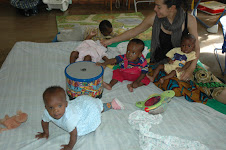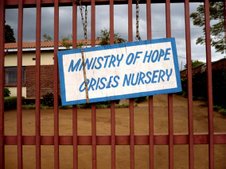 I’ve been told that “Infection rates amongst teenage girls are four times higher than boys”. I wonder what makes women more vulnerable to HIV. Here are a few answers from different articles that I found on the Internet. It is not an issue with simple cause and effect.
I’ve been told that “Infection rates amongst teenage girls are four times higher than boys”. I wonder what makes women more vulnerable to HIV. Here are a few answers from different articles that I found on the Internet. It is not an issue with simple cause and effect.At a biological level, women are more vulnerable because the mucosal surface of vagina is more exposed during intercourse; because semen has much higher concentration of HIV than vaginal fluid; and initiation into sex at a younger age makes women physiologically more susceptible to HIV.
However the article is not based on medical reports but on information that look at the structures of society. And it seems that traditional customs exacerbates the spread of HIV/AIDS.
*Marriage. Young women, particularly teenage girls, marry older infected men and have sex with their peers too. Moreover, polygamous marriages are not uncommon.
*Poverty and financial dependency. Men called "sugar daddies” buy sexual favors from young girls with tempting material goods such as make-up, mobile phones and clothes.
*School. Male teachers put pressure on girls to have sex to pass their exams.
*Shaking the dust. In the Balaka region (east of the country), young girls - 10 or 11-years-old, are taken off to a separate hut and visited by several men who have sex with them.
*Inheritance. When a man dies his wife automatically becomes the property of his brothers, along with his cattle, house and land. She might be HIV positive and her brother-in-law might have a wife or wives already. Each time a wife inheritance occurs, the number of people at risk of infection multiplies.
* Hyena. Custom that symbolizes society's view of women as nothing more than sex objects. According to this tradition, a family pays a man to have sex with the virgin daughter. She is given a piece of white cloth to be shown to the women of the family as “proof” that sexual intercourse took place.
These forms of coerced sex -from violent rape to cultural/economic obligations to have sex when it is not really wanted, increases risk of micro lesions and therefore of sexually transmitted infections or HIV infection.
* Myths on HIV/AIDS. One of these is that having sex with a virgin offers a guaranteed cure. Another is that clean and well-dressed people do not have HIV/AIDS and cannot be infected.
* Stigma, descrimination and denial. Not to admit that they have been infected. Women risk violence, abandonment, neglect, destitution, ostracism from family and community. Although a mother may know she is HIV positive, she continues to breast feed her baby. The fear of being "found out" far outweighs the risk of exposing the infant to HIV/AIDS. If someone dies of AIDS, it is common to hear relatives blaming the death on witchcraft or poison. Even the official cause of death is recorded as "a long illness" - pneumonia or meningitis.
"AIDS is killing Africa. Malawians change YOUR behaviour now! Let us save our country." Bingu wa Mutharika, President of Malawi (see picture).
Cultural norms fuel HIV in Malawi, Julian Siddle
www.portal.unesco.org
www.purposedriven.com (keyword:Malawi)



No comments:
Post a Comment